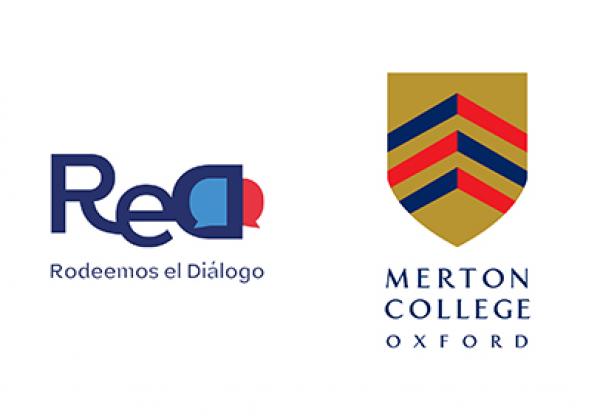Embrace Dialogue Academia Seminar 5: Football and Nation-building in the Colombian Peace Process
Dialogues bridging academic research with policy implications for contemporary peacebuilding challenges in Colombia
This series of Embrace Dialogue Academia Seminars, co-hosted by Embrace Dialogue and Merton College brings together presentations of finished academic research with discussions to draw out the implications of this work for the current challenges of peacebuilding in Colombia.
In this seminar, Dr Pete Watson presented findings from his forthcoming book, The Only Thing that Unites Us: Football and Nation-building During the Presidency of Juan Manuel Santos (forthcoming book, Liverpool University Press).
Presenter: Dr Pete Watson, Visiting Associate Fellow, Department of Spanish, Portuguese and Latin American Studies, University of Leeds
Discussant: Professor Matthew Brown, Professor in Latin American History, Department of Hispanic, Portuguese and Latin American Studies, University of Bristol
Convener: Dr Gwen Burnyeat, Junior Research Fellow in Anthropology at Merton College and member of Embrace Dialogue.
About the book
The book examines how and why Colombian President Juan Manuel Santos deployed football for nation-building during his two terms in office (2010-2018), particularly in the peace process with the FARC. It argues that football was used in a strategic, systematic and innovative manner, unrivalled in Colombia’s history, to support national unity and peacebuilding efforts. President Santos recognised the power of football, its capacity to transcend existing local, regional and national divisions, and its potential as an instrument to support social development objectives.
In the book, Pete analyses three elements of Santos’ use of football:
- sport-specific presidential discourse and Twitter broadcasts;
- football-specific legislation and public policies;
- government-organized Sport for Development and Peace campaigns.
He argues that Santos’ rhetoric around football emphasised a message of a single country unified behind the national men’s team, making a metonym for a new, peaceful Colombia. Football is positioned as an inclusive space, in contrast to previous representations of national team symbolism, which excluded those contained within the ‘Narcolombia’ imaginary.
